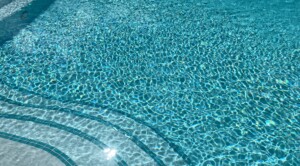Founding member and Director of the International Amusement and Leisure Defense Association (IALDA), Lary Zucker (below right) frequently consults on legal, administrative and regulatory issues that affect the theme park and amusement industry. He also serves as legal counsel to the New Jersey Amusement Association and is a member of the Risk Management Committee for the Roller Skating Association International.
 By Chad Emerson
By Chad Emerson
As a trial attorney for Marshall Dennehey Amusement Sports and Entertainment Practice Group, he oversees a broad range of amusement defense matters pending in New Jersey, New York, Pennsylvania, Ohio, Delaware and Florida. Blooloop’s Chad Emerson caught up with Zucker for an interview.
with Zucker for an interview.
Chad Emerson: How did you get your start representing clients in the amusement industry? What does your current law practice involve?
Lary Zucker: It all started in 1972 when I joined the New Jersey Bar and began my career as an insurance defense trial attorney. I represented a client that insured roller skating rinks and when the popularity of roller skating surged during the “disco roller boom” of the 1970s, a trickle of lawsuits soon became a flood and I spent my early career trying 15 to 20 jury trials a year on behalf of skating rink owners in New Jersey and Pennsylvania. In 1976, Edmond Young, a rink owner and a close friend, invited me to attend the Roller Skating Association Trade Show in Las Vegas, and I presented the first Legal Risk Management Seminar ever presented at that event.
I met Kurt Anselmi and Mike Amaro ( see Amusement Law: Chad Emerson gets Legal with the IALDA ) at this trade show and we immediately formed a personal and professional relationship that is still going strong. Edmond Young also owned an amusement park and he invited me to the IAAPA convention. There, I participated in the Legal Roundtable with a group of outstanding lawyers who represented amusement parks and amusement ride manufacturers. This group of lawyers also understood the benefits of networking, and IALDA, Inc. was born in 1991.
Ed and I continued our personal and professional relationship until his death last year. Among other accomplishments, Ed and I helped to enact a Roller Skating Assumption of Risk Statute in New Jersey; we helped to enact legislation that required injured riders to provide written notice of their claim to amusement parks within 90 days of the occurrence; Ed was the driving force behind the first roller skating industry endorsed insurance program which became a model for programs in other amusement industries.
My current law practice continues to focus on the amusement industry.
Emerson: What have been some of the most valuable lessons learned that you’ve had during your amusement industry career?
Zucker: First, I learned that the amusement industry is a relationship business and a great deal of good work can be accomplished by maintaining and building on established relationships with your clients and with industry leaders.
Second, I learned the power of networking through my involvement with IALDA, Inc.
Third, I learned that you cannot effectively represent clients in the amusement industry sitting in an office and staring at your computer. You must get into your client’s amusement parks, roller skating rinks and bowling centers, attend their conventions, and become a part of their industry. You can only represent the amusement industry from the inside, not from the outside looking in.
Finally, it is important to find work that you have a passion for. I have felt that way about the amusement industry for more than 35 years and the industry will always be a central focus of my career.
Emerson: Looking forward, what do you think are the biggest legal hurdles facing the industry from a lawsuit perspective?
Zucker: We can expect to see the Plaintiff’s Bar attempt to expand traditional liability theories against amusement ride manufacturers, owners and operators. In addition to traditional negligence theories, plaintiffs are describing rides as ultra-hazardous activities seeking to treat rides as common carriers. We are seeing more claims based on failure to warn, inadequate warnings, and strict liability.
The industry can expect to see an increasing volume of private actions brought under the Americans with Disabilities Act, especially now that new federal regulations are on the horizon. There is also an increase in the number of workplace claims for discrimination and harassment and the industry must do a better job of training and educating their workforce to avoid this potential exposure.
Emerson: What about regulatory perspective whether it be local, state, or federal?
Zucker: During the past decade, no state has been more proactive in regulating the amusement industry than New Jersey and the regulators in the Department of Community Affairs have created a comprehensive program to evaluate and certify amusement ride design, construction, erection, inspection, maintenance and repair. The New Jersey Department of Community Affairs is not afraid to set New Jersey apart from other states in terms of imposing regulatory burdens that they believe are appropriate.
As Counsel to the New Jersey Amusement Association, I am in a constant dialogue with the Department of Community Affairs in an effort to make sure that regulations promulgated are fair, effective and enforceable.
Related:
Amusement Law: Chad Emerson gets Legal with the IALDA
Amusement Parks and Government: Blooloop Interview with John McReynolds, Universal Orlando
“Crisis? What crisis?” : Tourism in the Sunshine State
Amusement parks: Theme Park Operations – A Conversation with Lee Cockerell









